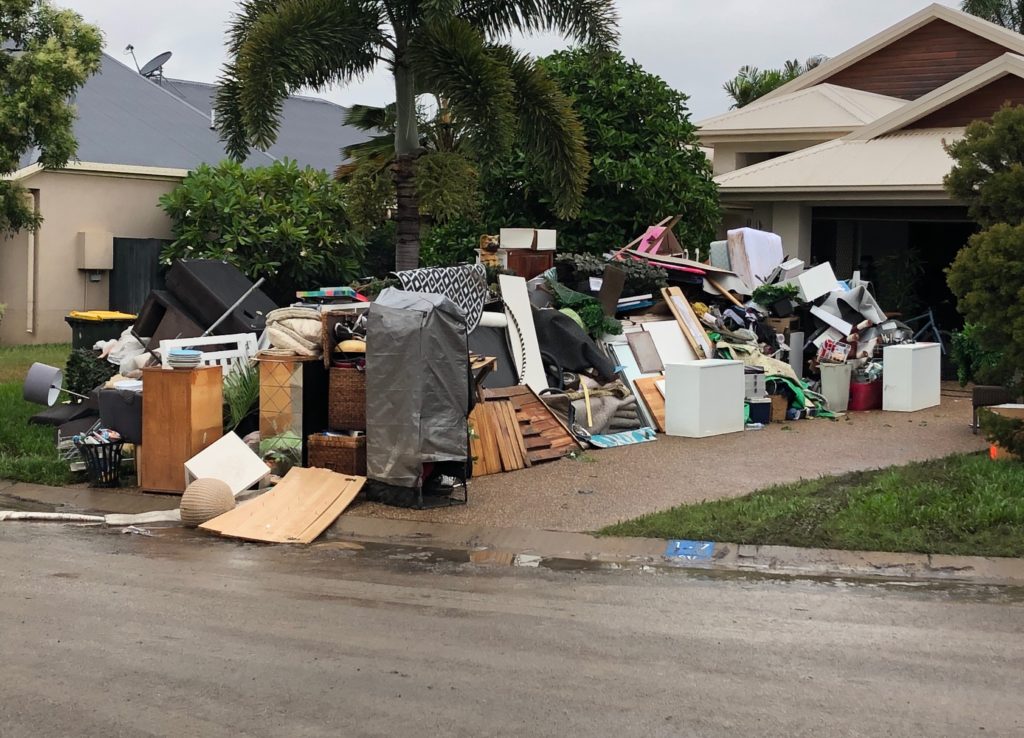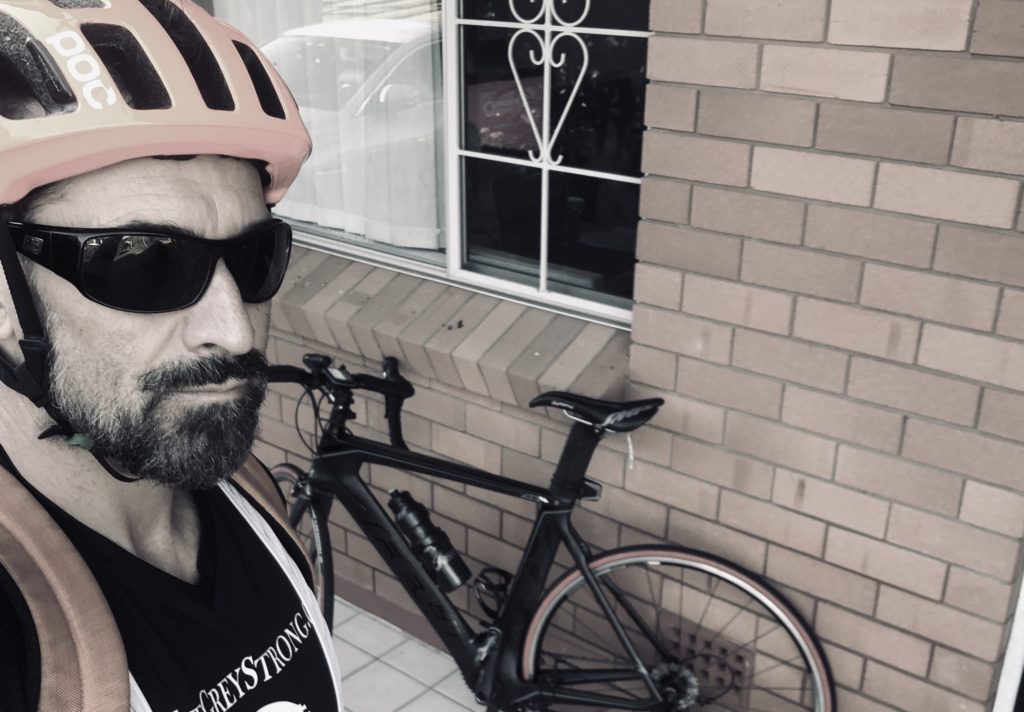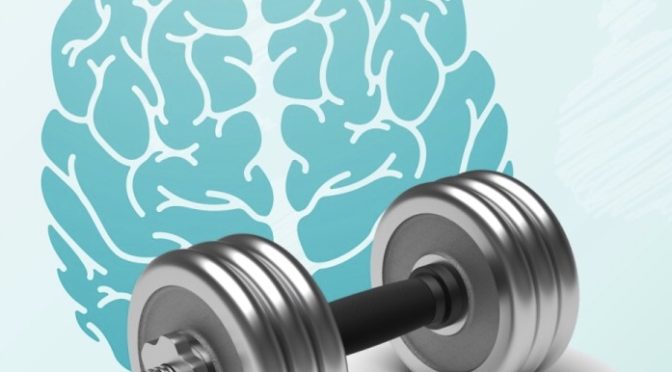As I lay on my sister-in-law’s rug in our temporary rental house after losing so much in the 2019 Townsville flood, I had a light-bulb moment following an intense road cycling ride. The insight was, basically, that it is extremely difficult for the neurocircuitry of the brain to remain “mood altered” towards a “depressive state” embodied by stress and anxiety immediately following very hard exercise. In other words, challenging exercise profoundly affects our emotional state and as I lay on that rug, my heart still pounding, my muscles still aching and my body still sweating, try as I might, I could “find” no trace of the trauma, stress, anxiety or depressive symptoms that were there 60 minutes beforehand. Of course, I knew that these feelings had not magically disappeared and would rear their ugly head again, but the temporary relief was pure bliss and, if anything, had injected some well needed hope where there had been very little before. The experience spurred me on to seek “treatment” through exercise.
Apart from losing a loved one, there is perhaps no greater tragedy than losing one’s home. The home for all intents and purposes is the foundation and place where your life is lived with those you cherish and love most dearly. It is where your goals and dreams are made. It is where you feel most secure and safe. It is where you laugh, cry, shout and smile. Your home is literally an extension of who your are as a person, who your family is. It is where you watch and participate in the most astonishing journey of change and development in each person, in each relationship and in the family as a whole. It is where you nurture and reaffirm old friendships and where you forge new ones. It is where you celebrate birthdays, Christmas and Easter. It is where we have great dinner parties and where we watch great movies and squirm through tactless reality TV shows. Home is so many things to us that it is difficult to describe them all but it certainly was where I was most comfortable and where I could be “myself”. Now it is gone and that’s very difficult to believe, deal with, accept. It leaves you feeling lost, displaced, uncertain, angry, sad, frustrated. It makes you wonder why? The effects of such an experience are so overwhelming, surreal almost and take a significant toll on your physical and mental health. It can leave you in a very dark place and I can honestly say that after the initial massive rush of adrenaline that comes when the waters recede and the clean up starts and comes to an end, I was heading toward that very dark place.
(Going in to our house hours before the major flood; it was to rise another 40 cm)

As an Exercise Physiologist and Scientist, and having worked extensively in the neuroscience, Psychiatry and mental health field for 15 years, I was acutely aware of the importance and significant positive effect exercise and a physically active lifestyle can have on mental health. There are many studies now to demonstrate that, no matter what the problem, exercise has a critical role to play and should……no, must be included in an overall treatment plan. In fact, a recent book published titled “Exercise based interventions for mental illness: Physical activity as part of clinical treatment” which reviewed 100s of studies in this area, lays out how exercise and a non-sedentary lifestyle helps dramatically improve treatment outcomes, physically, emotionally and mentally. Those suffering from depression, anxiety- and stress-related disorders, including generalised anxiety disorder (GAD), social anxiety disorder (SAD), obsessive-compulsive disorder (OCD), panic disorder (PD), posttraumatic stress disorder (PTSD), bipolar disorder (BD), schizophrenia and alcohol use disorders all have so much to gain from exercise and increased general physical activity.
All that knowledge and experience in this field was finally put to the quintessential test. After waking one morning, several weeks after our home was devastated, our lives shattered, I lay in bed and just couldn’t get up. What was there to get up for? I had disengaged from everything, wasn’t exercising, was having a couple of glasses of wine every night, was eating crap and wasn’t sleeping very well. I was pretty much at a point that if something didn’t change, I was in big trouble. I struggled out of bed and sat dejected in the lounge room of our rental and looked at my wife, Sandy, and just shook my head and said: “I can’t do this, it’s too hard”. I realised that I would need to take some control back and made the decision, then and there, to put in place what I knew was instrumental for good overall health. That meant, what is in my opinion so important for all of us, getting to bed early and focusing, prioritising on getting a good night’s sleep. It meant no more reaching for the bottle of red to numb the pain. It meant focusing on eating well. It meant reaching out and seeking some counselling. And, what I believe now helped me no end, ensuring I regularly exercised and on occasion, very intensely.

On that fateful morning after sitting on the lounge totally despondent and in despair, and deciding that I needed to change because I couldn’t change what had happened, I “coerced” my way into my cycling kit, put my socks and cycling shoes on, my helmet, had my coffee, pumped the tyres up, dusted off my road bike, clicked my feet into the pedals and headed down the road. For the next 10 minutes, I battled with the urge to turn around, go home and go back to bed. But what would that achieve? I’d been there, done that. It wasn’t helping in any way – getting “more rest” – so I pushed on. It was in the next 15 minutes that I realised that it was the first time since the flood that I felt “released” from all the shit, the heartache, the frustration, the anger, the lethargy, the anguish. There was a feeling of dissipation of all of the negativity which makes you feel so awful. The exercise had quite literally expunged the very essence of all that was bad.
The day I decided to make these changes was the day my whole attitude changed. Once I made the change, had a plan, followed it and acted on it, I now gained some control. It is the loss of control over our circumstances that many of us struggle with. Recovery requires that we have control over something. Whatever that something is, I would implore that it be something that you perceive is helping you move forward and preferably, something that is going to enhance your overall health and wellbeing rather than detract from it. Exercise certainly qualifies as one such thing and I would indeed strongly contend, is one of the most important lifestyle behaviours that can dramatically influence overall health, particularly our mental health.
To find out more contact FitGreyStrong@outlook.com or phone 0499 846 955 for a confidential discussion. Act now and take back control.
